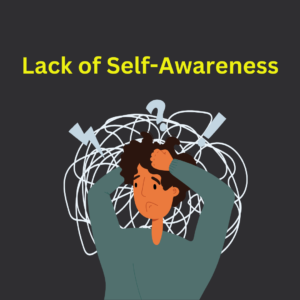CEO: [during the weekly meeting with the leaders] “I am glad to announce the completion of our recent project.”
CEO: [looking at Rahul] “Honestly, I had serious doubts about your ability to handle this project from the beginning. I didn’t expect much from you and thought we might have to redo everything to get our money’s worth. It’s shocking that you actually managed to come up with some innovative solutions and execute it well. Frankly, I still can’t believe we got lucky this time. Let’s hope we don’t have to rely on miracles again in the future.”
I looked at Rahul, who was feeling deeply humiliated and undervalued. Despite his hard work and the successful execution of the project, the CEO’s words undermined his confidence and made him feel that his efforts were unappreciated and dismissed as mere luck. I was shocked by this public belittlement and couldn’t believe that anyone could say such thoughtless and demeaning words without realizing the emotional damage they had caused.
Workplace incivility is defined as low-intensity deviant behaviour with ambiguous intent to harm the person. It encompasses a spectrum of negative behaviours including rudeness, screaming, disrespect, belittling, demeaning, discourtesy, a lack of regard for others, unkind actions, and public rebuke.
In today’s fast-paced environment, fostering a harmonious culture is critical for productivity and employee well-being remains a pervasive issue. The Harvard Business Review (HBR) has highlighted that incivility damages organizational reputation and can deter talented individuals from seeking employment with the organization.
There are several factors that contributes to incivility in the workplace:
• Power asymmetry : Power asymmetry allows individuals in higher positions to act uncivilly toward their team without fear of significant repercussions. This power dynamic perpetuates and normalizes such behaviour, leading to a culture of disrespect.
• Lack of self-awareness: People may not realize how their behaviour affects others, leading to unintentional disrespect and insensitivity.
• Poor communication: Ineffective communication fosters misunderstandings and resentment, which can lead to uncivil interactions.
• Machiavellianism: Some people use manipulative strategies to achieve personal goals, often at the expense of others’ well-being.
• Narcissism: A lack of empathy and an inflated sense of self-importance can lead to dismissive or demeaning behaviour.
• A lack of emotional intelligence (EQ) and spiritual intelligence (SQ): Without understanding how to manage their own emotions and those of others, people may have poor interpersonal interactions and lack compassion.
The impact of incivility is multi-folds. It doesn’t only lead to lower productivity, higher absenteeism and higher turnover rates but has a deep impact on emotional wellbeing of the people leading to low self esteem, higher stress levels and decreases morale. This can create a vicious circle of toxic culture. According to the Society for Human Resource Management (SHRM) 2024 report, 65% of employees reported that workplace incivility negatively affected their work performance.
The only way to address incivility is to practice civility. Encouraging respectful interactions and recognizing positive behavior can help create a more inclusive and supportive environment. Nevertheless, the role of top Leaders also plays a crucial role in setting the tone for workplace culture. By modeling respectful behaviour and holding everyone accountable, leaders can help foster a culture of civility. Companies must also train people in empathy and mindfulness can enhance their ability to understand and manage their own emotions and those of others, reducing the likelihood of uncivil behavior. Practising Authenticity can also help create a culture where respect and kindness is valued. Leaders who are self-aware, genuine, and transparent can build trust and create a more positive workplace atmosphere.
Drawing on recent studies from SHRM, Gallup, and other authoritative sources, it is clear that addressing incivility is not just a moral imperative but also a strategic necessity for organizational success.
Have you experienced incivility at work?
How did you manage or respond to uncivil behavior at work?





Leave a Reply